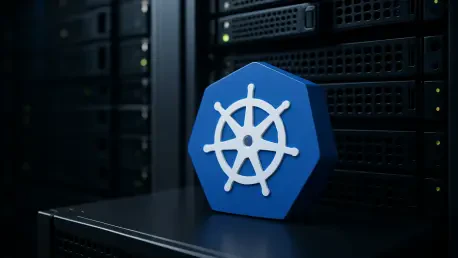In an era where artificial intelligence is reshaping the technological landscape at an unprecedented pace, organizations face mounting challenges in deploying and managing AI workloads within sophisticated containerized environments. Mirantis, a key innovator in cloud and container technology, has unveiled a groundbreaking solution to address these hurdles with its latest offering, MCP AdaptiveOps. This new set of consulting services is specifically designed to assist businesses in integrating AI applications using Model Context Protocol (MCP) servers on Kubernetes clusters. As AI adoption continues to surge, the complexity of managing data-intensive processes within dynamic infrastructures has become a pressing concern for IT teams worldwide. With a focus on bridging expertise gaps and ensuring seamless deployments, Mirantis is stepping up to empower organizations to harness the full potential of AI without being bogged down by technical constraints or skill shortages. This initiative marks a significant step forward in addressing the evolving needs of modern IT environments.
Addressing the AI Skills Gap in IT Teams
The rapid rise of AI technologies has spotlighted a critical issue within the IT sector: a pronounced lack of specialized skills to manage complex deployments like MCP servers on Kubernetes. Many organizations struggle to find professionals adept at navigating the intricacies of container orchestration for AI workloads, often leading to delays and inefficiencies in implementation. Mirantis’ MCP AdaptiveOps tackles this challenge head-on by providing direct access to seasoned engineering teams who collaborate closely with internal staff. Through hands-on training and expert guidance, these services aim to equip IT personnel with the knowledge needed to deploy and maintain multiple MCP servers effectively. The emphasis on knowledge transfer ensures that businesses are not just reliant on external support but can build sustainable in-house capabilities over time. This approach is particularly vital as the demand for AI-driven solutions grows, pushing companies to adapt quickly to maintain a competitive edge in their respective industries.
Beyond training, MCP AdaptiveOps offers comprehensive support that spans the entire lifecycle of AI workload management on Kubernetes. This includes assistance with greenfield deployments for organizations starting from scratch, as well as detailed audits of existing MCP server configurations to identify areas for optimization. Additionally, ongoing operational support backed by robust service level agreements guarantees stability and security, addressing concerns about system reliability in high-stakes environments. By tailoring solutions to specific organizational needs, Mirantis ensures that IT teams are not overwhelmed by the complexities of scaling AI applications. This customized support is crucial in an era where data-intensive processes require dynamic resource allocation and real-time adaptability. As Kubernetes solidifies its position as the go-to platform for orchestrating such workloads, services like these become indispensable for overcoming technical barriers and fostering long-term resilience in IT infrastructure.
Navigating the Complexity of AI-Driven Infrastructure
The integration of AI into IT environments introduces a new layer of complexity, particularly with the incorporation of specialized hardware such as graphics processing units (GPUs) and AI accelerators into Kubernetes clusters. Managing these components demands a nuanced understanding of both hardware and software interactions, a skill set that remains scarce among many IT professionals. Mirantis addresses this challenge through MCP AdaptiveOps by advocating a pragmatic, use-case-driven approach. Instead of attempting to build overarching platforms from the outset, the service encourages teams to focus on specific AI applications, gradually building expertise through practical experience. This methodical strategy helps mitigate the overwhelm associated with transitioning to AI-driven infrastructure, allowing organizations to scale their capabilities at a sustainable pace while minimizing risks of misconfiguration or performance bottlenecks.
Furthermore, the growing prevalence of stateful applications on Kubernetes, driven by AI’s data-heavy nature, underscores the need for expert intervention in deployment and management. Mirantis’ consulting services provide not only technical support but also strategic insights into optimizing these setups for maximum efficiency. As the number of MCP server deployments is expected to increase significantly in the coming years, ensuring secure and scalable operations becomes paramount. The initiative also reflects a broader industry trend where Kubernetes is becoming the de facto standard for AI workload orchestration due to its flexibility and scalability. By offering a blend of deployment assistance and operational guidance, Mirantis positions itself as a key enabler for businesses looking to capitalize on AI innovations without being hindered by the steep learning curve or infrastructure demands that often accompany such advancements.
Future-Proofing AI Integration
Reflecting on the strides made, Mirantis’ introduction of MCP AdaptiveOps stands as a pivotal response to the escalating demands of managing AI workloads on Kubernetes clusters. This service provides a lifeline for organizations grappling with technical limitations, delivering expert-led deployments and thorough audits to optimize existing systems. The commitment to ongoing support through service level agreements ensures that stability and security remain uncompromised, even as complexity grows. Looking ahead, the focus should shift toward scaling these solutions to meet future demands, with an emphasis on continuous learning and adaptation. Organizations are encouraged to invest in upskilling their teams further, leveraging partnerships with experts to stay ahead of technological curves. As AI continues to redefine IT landscapes, such strategic initiatives promise to play a critical role in enabling seamless integration, ensuring that businesses can innovate confidently without being constrained by internal challenges.









